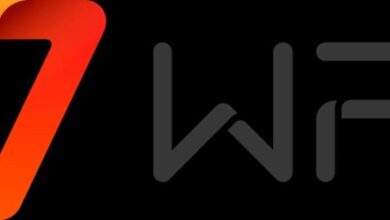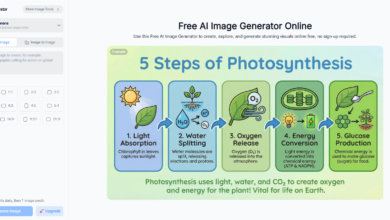The Impact of AI on Modern Recruitment: Bridging News Trends and Talent Acquisition

The UK, and England in particular, is experiencing a skilled labour shortage. The lack of skilled workers costs the UK economy £39 billion. This problem also affects the overall productivity of the country’s economy, making it sluggish. This pressing issue requires new approaches to talent acquisition and management.
The game-changing tools are already here. We’re talking about using artificial intelligence and machine learning to find and hire candidates. The impact of AI on recruitment is yet to be seen, but all the signs are that it is significant and that this trend is here to stay.
The role of AI in talent acquisition and recruitment
AI in talent acquisition appears to be more impactful than any previous traditional methods. See for yourself:
- Algorithms analyse all the available data according to the given parameters,
- They identify patterns,
- Select the most suitable candidates,
- Predict the retention rate of new hires in the company.
No wonder organisations are increasingly relying on AI to make hiring decisions.
When we talk about AI and talent acquisition, we mean various AI algorithms and tools, namely machine learning and generative AI, such as AI caption generators, chatbots, etc.
Let’s look at these things in more detail.
Applicant Tracking Systems (ATS)
Modern ATS recruitment systems are being enriched with AI capabilities, which means that all the work involved in recruitment is now done at lightning speed. And decisions are now based on data, not guesswork. When you decide to create an ATS platform, you automate recruitment tasks that were previously done manually, which means you can reduce the time from job posting to hiring. According to statistics, nine out of ten respondents claim that AI has made their hiring process faster, and 77.9% say it has saved them money.
But that’s not all the benefits you can expect. With ATS, the recruitment process becomes more informed. Based on natural language processing (NLP) technology, ATSs analyze insights into candidates’ backgrounds, interests and even career prospects within your organization. Candidate experience is another no less important benefit. You probably know that it’s difficult to communicate with each candidate individually during a recruitment campaign – your HR people tend to focus on the most suitable candidates, often leaving others out. This is a reality, as time and attention are limited resources. With AI, the situation is quite different. Nowadays, ATS systems have chatbots that can continuously communicate with candidates, answering their questions and letting them know that your company is a great place to work.

Predictive analytics solutions
As mentioned above, high employee turnover is a challenge facing organizations in the digital age. Not only does employee turnover hurt internal team communication and the company’s reputation, but it also harms the organization’s finances. The power of AI predictive analytics tools is that they help identify potential turnover risks as they analyze factors such as a candidate’s work history, career trajectory, soft skills, communication style and even personality traits. This allows recruiters to spot candidates who are likely to leave early and focus on those who are more likely to thrive, grow and succeed in their role.
AI-based analysis of video interviews
AI-powered video interviewing platforms are transforming recruitment by scoring more than just a candidate’s answers. These tools can assess interviewing skills, language, mood and even facial expressions, providing insights into traits such as confidence, empathy, flexibility and the ability to engage in meaningful dialogue. However, AI isn’t a silver bullet – recruiters’ personal impressions remain essential to ensure a well-rounded assessment of each candidate.

New trends and talent acquisition
One of the current trends is remote working. People really want to work from home. But what about their efficiency? The efficiency of remote working is ensured by artificial intelligence tools because they:
- provide access to the information needed to work on the go, at any time;
- provide access to a global pool of candidates, increasing the chances of hiring the best specialists from any country.
The trend towards a personalized candidate experience has also been met. It is well known that people today expect fast and clear feedback. AI tools give them what they want – a more personalized candidate experience.
And there are a couple of other things that are important:
- AI promotes diversity by focusing on what candidates can do, rather than irrelevant factors such as gender or ethnicity;
- It shifts the focus from degrees to real skills and experience. This ensures that companies find the best talent, not just those with the right degree.
Conclusion
As you may already be aware, in order to grow your team with high quality new hires, you first need to identify those who are adaptable, quick learners and forward thinkers. How do you do this? Artificial intelligence is here to help. AI is fast, accurate and can be tailored to meet modern hiring needs, making it a valuable tool. However, human judgement and empathy are still crucial. We believe the best practice is to use AI alongside human input for a balanced and effective recruitment process.

